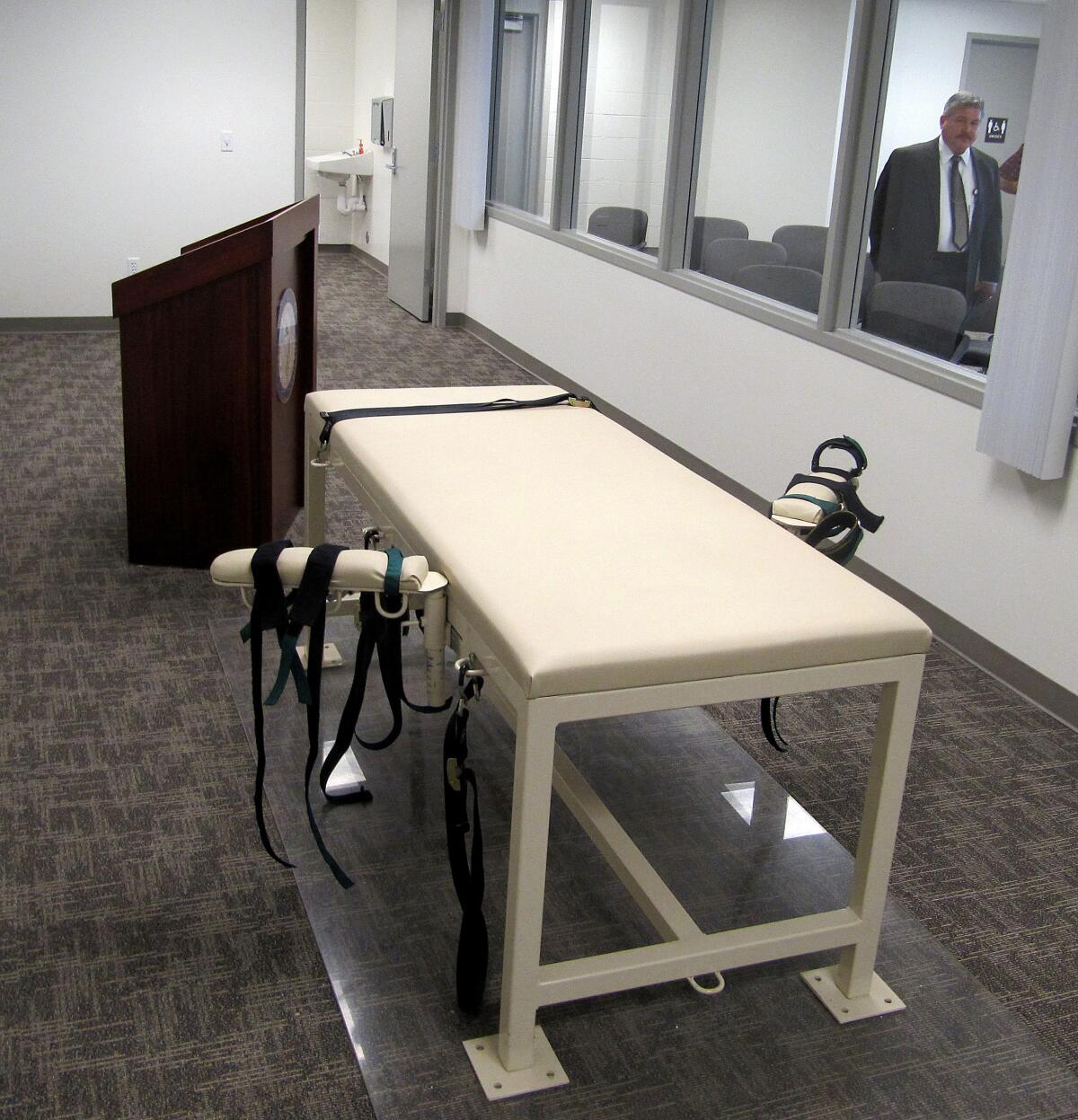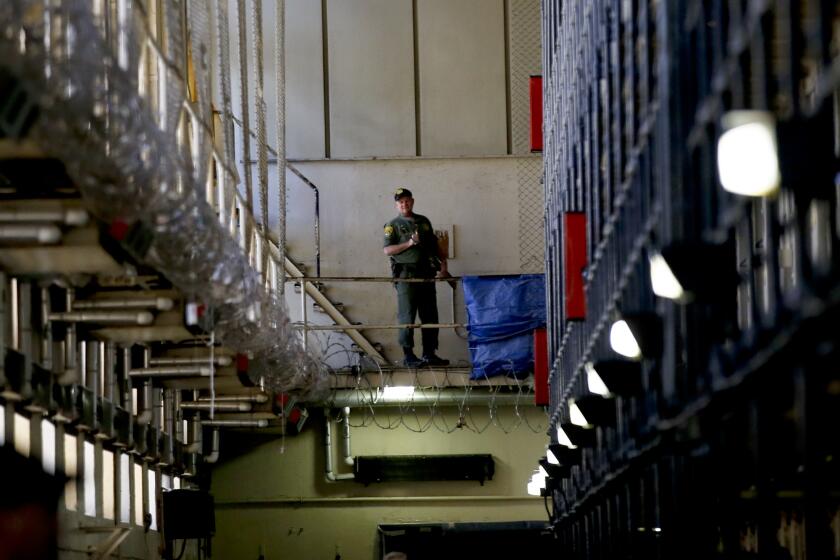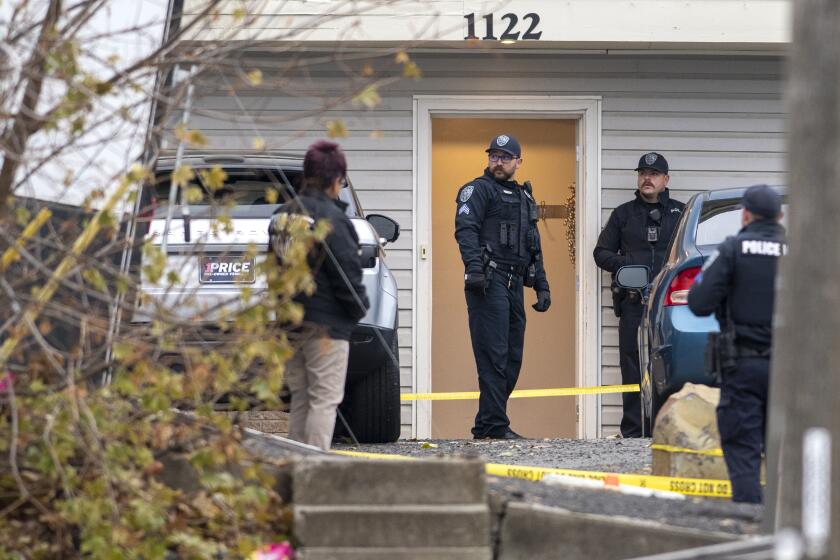Why Idaho is considering bringing back execution by firing squad

- Share via
Gerald Pizzuto Jr., a convicted murderer on Idaho’s death row, got a temporary reprieve in December when the state allowed his death warrant to expire because it was unable to obtain the drugs needed for a lethal injection, the only legal method of capital punishment in Idaho.
Under a newly proposed draft bill, prisoners like Pizzuto could be executed by firing squad.
According to the draft law introduced last week in Idaho’s House Ways and Means Committee, if lethal injection is unavailable within five days of the state issuing a death warrant or if a court finds it unconstitutional, the state can use firing squads as an alternative form of execution.
“This is a rule of law issue,” Rep. Bruce Skaug, a Republican who sponsored the bill, said at the committee hearing. “Our criminal system should work, and our penalty should be exacted. When promised and deserved, the death penalty should be duly invoked.”
The draft is in its infancy with several hurdles to clear, including public and committee hearings, before it can come up for a vote.
Idaho has never put a prisoner to death by firing squad, though it has previously allowed the method of execution. In 2009, the state repealed the practice, which it adopted as an option in 1982, to fend off potential legal appeals that could cost taxpayers money and delays, Senior Deputy Atty. Gen. Lamont Anderson argued at the time.
The latest move to allow firing squads represents a growing trend among death penalty states to consider alternative forms of execution as the use of lethal injections is beset by access issues, legal fights and botched procedures.
Nationwide support for the death penalty, meanwhile, is at a 50-year low, though a majority of Americans still favor capital punishment. Executions themselves are on the decline.
The death penalty is allowed in 24 states, according to the Death Penalty Information Center. (California has had a governor-imposed moratorium on capital punishment since 2019.)
The Condemned Inmate Transfer Pilot Program has moved more than 100 people off of death row at San Quentin State Prison and the California Central Women’s Facility and into other housing locations, according to the California Department of Corrections and Rehabilitation.
Utah, Mississippi, Oklahoma and, most recently, South Carolina are the only four states that have adopted the firing squad as a secondary option, but such executions are rare: Only three people have been put to death by firing squad in the last half-century, all of them in Utah, most recently in 2010.
Since its introduction 40 years ago, lethal injection has become the main method of capital punishment, in part because it has been viewed as the most humane form. But the Death Penalty Information Center found that seven of the 20 lethal injection execution attempts last year were botched — a record high — including “visibly problematic” procedures.
Some states have also said they’re hamstrung by challenges procuring the necessary drugs to carry out lethal injections after pharmaceutical companies blocked their products from being used in executions.
“All of these other, older methods are being tossed around, not used much, but still: It’s sort of out of desperation. To carry out executions, you need a method,” said Richard Dieter, interim executive director of the Death Penalty Information Center. “The method is in flux right now.”
Deborah Denno, a Fordham University expert who has been studying capital punishment for 30 years, said issues surrounding lethal injections have contributed to states such as New Jersey and Virginia abolishing capital sentences, and to moratoriums on executions in others, like California.
“I am surprised more states don’t use firing squad,” Denno said.
With firing squads, she said, states would be unlikely to encounter availability issues or botched executions. In only two known cases did executions by firing squad go wrong: Wallace Wilkerson in 1879, and Eliseo J. Mares in 1951 — two “fluke” incidents that Denno said occurred long ago and in a “different culture historically.”
The killings terrified the small city of Moscow, which had not recorded a murder in five years.
But experts say the optics of firing squads are fraught, particularly against the backdrop of mass shootings and a national debate about gun violence.
Rep. Lauren Necochea, a Democrat who voted against the draft’s introduction Wednesday, said she had a “visceral reaction” to the idea and cited Idaho’s 2009 repeal of its never-used firing squad. Necochea said she’s “increasingly uncomfortable” with capital punishment.
“I would push back against the justification for bringing back the firing squad now as expediency in carrying out death sentences,” she said. “When the stakes are so high, proceeding judiciously and slowly are more appropriate.”
On Friday, the Idaho Department of Correction served a a new death warrant to Pizzuto, who was sentenced to death in 1986 for the murders of two gold prospectors.
Pizzuto has been in hospice since 2019, suffering from bladder cancer, heart disease and diabetes. (The Idaho Commission of Pardons and Parole asked Gov. Brad Little in 2021 to commute his sentence to life in prison, but the governor denied the request.)
The department of corrections said in a statement that efforts to obtain the drugs needed for lethal injection are ongoing, and set an execution date for March 23.
More to Read
Sign up for Essential California
The most important California stories and recommendations in your inbox every morning.
You may occasionally receive promotional content from the Los Angeles Times.













